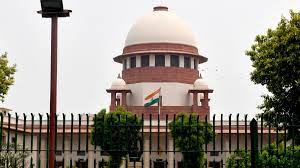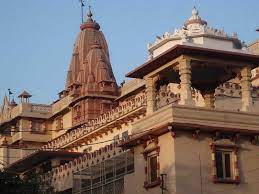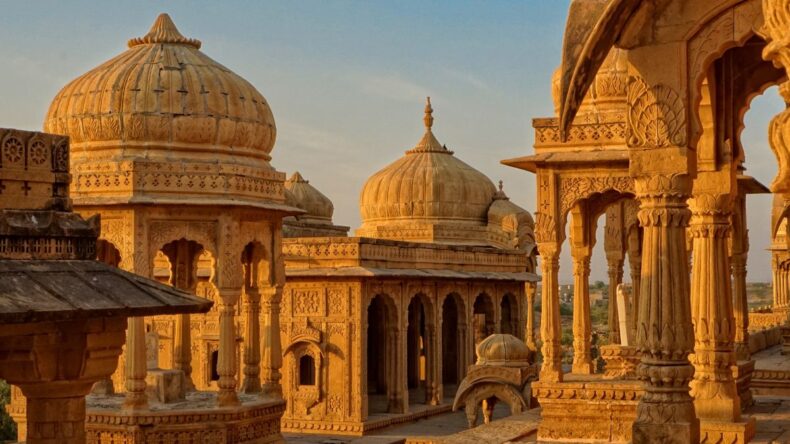The Supreme Court on Wednesday ordered a 10-day status quo regarding the demolition drive by railway authorities near Krishna Janmabhoomi in Mathura. The order came on a petition filed by a local resident, who challenged the demolition drive as illegal.
Table of Contents
Petition Challenges Demolition Drive as Illegal
The petition alleged that the demolition drive was being carried out without any prior notice to the affected parties. It also claimed that the railway authorities were not authorized to conduct such a demolition drive in Mathura.
The Supreme Court, while ordering a status quo, directed the railway authorities to file a detailed reply to the petition within 10 days. The matter will be heard again on August 25. “The demolition drive is illegal and should be stopped immediately,” said the petitioner’s lawyer.

Why the Demolition Drive Sparked Controversy in Mathura?
The demolition drive sparked protests from locals, who claimed it was an attack on Hindu culture in the Krishna Janmabhoomi, Mathura. “The demolition drive is being carried out to clear encroachments on railway land,” the spokesperson added. They also alleged that the demolition drive was being carried out at the behest of certain political groups. “The demolition drive is an attack on Hindu culture,” said a local resident.
The railway authorities, however, have denied any wrongdoing. “We are worried about the demolition of our homes and businesses,” the resident added. They have said that the demolition drive was being carried out to clear encroachments on railway land. “The railway authorities are not authorized to carry out such a demolition drive,” the lawyer added.
The demolition drive near Krishna Janmabhoomi has sparked a debate about the future of the temple complex. Some people believe that the demolition drive is necessary to clear encroachments on railway land, while others believe that it is an attack on Hindu culture. The Supreme Court’s order to stay the demolition drive has given both sides time to argue their case.
What Are the Next Steps in the Case?
The Supreme Court’s order has come as a relief to the locals, who were worried about the demolition of their homes and businesses. The order also gave them time to file their objections to the demolition drive.
The case is likely to be closely watched by the Hindu community, which is concerned about the protection of their religious sites. The Supreme Court’s decision on the matter could significantly impact the future of the Krishna Janmabhoomi temple complex.
What Does the Demolition Drive Mean for the Future of Krishna Janmabhoomi?
The case is likely to have a significant impact on the future of Krishna Janmabhoomi. If the Supreme Court rules in favor of the demolition drive, it could lead to the destruction of a significant part of the temple complex. However, if the Supreme Court rules in favor of the locals, it could pave the way for the construction of a new temple at Krishna Janmabhoomi.
The outcome of the case is also likely to have a wider impact on Hindu-Muslim relations in India. The demolition drive has been seen by some as a sign of rising Hindutva nationalism in India, and it has raised fears of communal violence. The Supreme Court’s decision on the case could help to ease these tensions, or it could further inflame them.
- The Krishna Janmabhoomi temple complex is one of the most important Hindu pilgrimage sites in India.
- The temple is believed to be the birthplace of Krishna, one of the most popular deities in Hinduism.
- The temple complex has been the subject of a long-running legal battle between Hindu and Muslim groups.
- In 2019, the Supreme Court ordered a survey of the temple complex to determine its ownership.
- The survey report is still pending.
- The demolition drive by the railway authorities was carried out in the wake of the survey report.
- The demolition drive was met with protests from locals.
- The Supreme Court has ordered a status quo on the demolition drive for 10 days.
The Supreme Court’s order on the demolition drive near Krishna Janmabhoomi is a significant development. The order has come as a relief to the locals, who were worried about the demolition of their homes and businesses. The order also gave them time to file their objections to the demolition drive.

The case is likely to be closely watched by the Hindu community, which is concerned about the protection of their religious sites. The Supreme Court’s decision on the matter could significantly impact the future of the Krishna Janmabhoomi temple complex. The case is still ongoing, and it is too early to say what the ultimate outcome will be. However, it is clear that the demolition drive near Krishna Janmabhoomi is a significant development with the potential to have a major impact on the future of the temple complex and on Hindu-Muslim relations in India.












